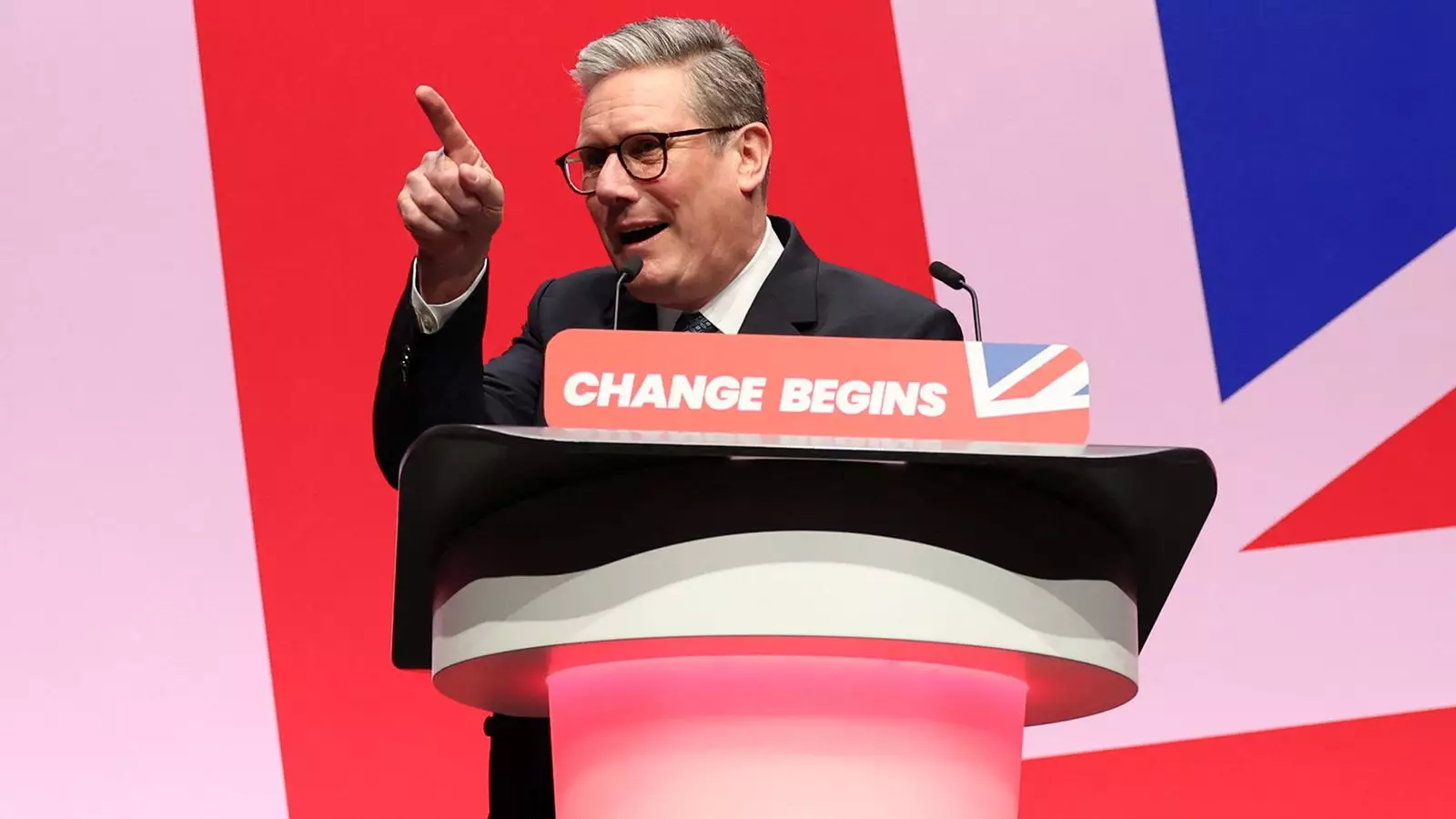The prospect of child poverty escalating under a Labour government is not just alarming; it is an outright failure that echoes through our societal structures. The latest statements from prominent figures, including former Labour leader Jeremy Corbyn, highlight a critical juncture. The upcoming Labour administration, it seems, may usher in the highest rates of child poverty in history. This challenge doesn’t merely reflect an economic crisis; it poses a moral dilemma that demands immediate intervention. As the cost of living crisis persists, with inflation swallowing up paychecks and plummeting living standards, the Labour leadership must confront the harsh reality that economic constraints are more a matter of prioritization than mere scarcity.
Priority Over Scarcity: A Misguided Approach
The Chancellor’s recent decisions, which prioritize increases in defense spending while simultaneously slashing welfare provisions, are symptomatic of a government that has lost touch with the struggles of the average citizen. The message that our government chooses to push more disabled individuals and children into poverty while magnifying its military expenditures is not just cynical, it is profoundly disheartening. Experts estimate that around 250,000 individuals could find themselves in relative poverty by 2030 due to these impending cuts. This is more than a statistic; it represents lives affected, children deprived of opportunities, and communities left behind.
While Rachel Reeves asserts a desire to restore fiscal responsibility, pledging to keep day-to-day spending on the back of tax receipts rather than borrowing, it is the hidden costs of her policies that we should scrutinize. One must wonder, at what point does fiscal discipline sacrifice the welfare of the most vulnerable? By focusing predominantly on technicalities of budget management, the government risks creating a society where compassion takes a backseat to cold calculations, further entrenching inequality.
A Call for Progressive Alternatives
The call for a wealth tax on individuals with assets exceeding £10 million could provide a needed lifeline to struggling communities; it is an idea worth embracing in the ongoing debate about economic equity. The notion behind such progressive taxation is simple yet powerful: those who have garnered immense wealth during periods of economic upheaval should contribute to rebuilding the very fabric of society. If we aim to revitalize our schools and hospitals, addressing the root causes of child poverty, rather than merely targeting its symptoms, becomes imperative.
Progressive policies must be at the forefront of political discourse. Beyond addressing taxation, they should also include rent controls, nationalization of essential utilities like water and energy, and increased investment in social welfare rather than military ventures. It is a moral obligation to advocate for a system that uplifts the many rather than enriching the few. The current trajectory of adhering to outdated fiscal rules, while ignoring the voices calling for compassion and empathy in governance, simply cannot sustain itself within a civil society.
The Toxic Rhetoric of Scapegoating
Worryingly, it appears that Labour is mirroring the discourse of Reform UK by adopting a narrative that scapegoats migrants and minorities. Such tactics not only fuel societal division; they dilute the efficacy of inclusive governance. Remaining firm in our values of solidarity and diversity must guide the Labour Party’s strategy moving forward. Embracing rhetoric that glorifies division only appears to bolster the threats posed by extremist ideologies creeping into mainstream consciousness.
Sir Keir Starmer’s leadership should be synonymous with a progressive vision and a commitment to healing. But as it stands, Labour’s failure to shed certain narratives seems set to pave the way for alternatives like Reform UK that thrive on fear and division, undermining social cohesion at every turn. The political landscape urgently requires an alternative path — one not overshadowed by fear-mongering but instead illuminated by compassion and a genuine commitment to the welfare of all citizens.
Public Sentiment is Shifting
Public sentiment is clear; a recent YouGov poll revealed that three-quarters of the British public support increased taxes on the wealthiest individuals over cuts to public spending. This is a clarion call for fairer distribution of resources, a resounding endorsement for a government that recognizes the necessity of economic equity. Underestimating public outrage about escalating child poverty poses a considerable risk to Labour as it heads into local elections. Citizens are not merely voters; they are the heartbeat of this democracy. Their voices — programmed to resonate for equity and justice — demand urgent responses from our political leadership.
Now is the time for Labour to take bold steps toward the alternative path that Jeremy Corbyn and others advocate. As the nation battles the daunting specter of rising child poverty, it will only reach the tipping point where progressive policies are not merely aspirations but essential measures. Labour must listen, reconsider, and act decisively for the good of not just the few, but for all.



Leave a Reply